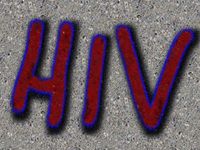In a landmark development for the global fight against HIV, the European Medicines Agency (EMA) has recommended the approval of lenacapavir, a twice-yearly injectable drug developed by Gilead Sciences and marketed in Europe under the name Yeztugo or Yeytuo. This recommendation, issued on July 24-26, 2025, marks a critical step toward expanding HIV prevention options across the European Union and neighboring countries.
Lenacapavir is a novel HIV-1 capsid inhibitor designed for pre-exposure prophylaxis (PrEP), targeting adults and adolescents at increased risk of sexually acquired HIV-1 infection. Unlike existing daily oral pills or bi-monthly injectables, lenacapavir offers an unprecedented six months of protection with just two subcutaneous injections annually, following an initial oral lead-in phase. This long-acting formulation is poised to revolutionize HIV prevention by addressing adherence challenges and reducing stigma associated with daily medication.
The EMA's Committee for Medicinal Products for Human Use (CHMP) granted its positive opinion under accelerated review, recognizing lenacapavir as a “major public health interest.” Once the European Commission grants final approval later this year, the drug will be authorized across all 27 EU member states, as well as Iceland, Norway, and Liechtenstein. This approval will include an additional year of market exclusivity in the EU due to its novel indication for prevention.
Clinical trial data underpinning this recommendation are compelling. The Phase 3 PURPOSE 1 trial, conducted among 2,134 cisgender women and adolescent girls in sub-Saharan Africa, demonstrated 100% efficacy, with zero new HIV infections reported in the lenacapavir arm. PURPOSE 2, involving 2,179 cisgender men and gender-diverse participants across multiple regions, showed a 99.9% prevention efficacy, with only two infections occurring in the lenacapavir group. Both trials revealed lenacapavir's superiority over daily oral PrEP with no new safety concerns. Side effects, including injection site reactions, headache, and nausea, were generally mild or moderate, and no participants discontinued due to adverse effects.
Namrata Shah, MD, an infectious disease physician at Whitman-Walker Medical Clinic, highlighted lenacapavir’s transformative potential in an interview with Pharmacy Times®. She emphasized that the drug’s twice-yearly subcutaneous injection offers a distinct advantage over other prevention methods, including the two-month intramuscular cabotegravir. “Offering people choice and autonomy can overcome traditional barriers to persistence,” Shah noted, referencing data that PrEP persistence tends to be only 40% at six months. She added that lenacapavir could particularly benefit individuals who struggle with daily adherence, experience pill fatigue, or face stigma and privacy concerns related to carrying oral medication.
Gilead Sciences’ chief medical officer, Dietmar Berger, underscored the company’s commitment to global HIV prevention efforts, stating, “This milestone underscores our commitment to reimagining HIV prevention globally, expanding options for populations facing barriers to care.” Gilead has licensed lenacapavir for generic production in 120 low- and lower-middle-income countries, aiming to facilitate access through the EU-Medicines for All (EU-M4all) procedure and World Health Organization (WHO) prequalification. However, the company’s licensing policy has faced criticism for excluding most of Latin America, despite rising HIV rates in the region.
UNAIDS Executive Director Winnie Byanyima hailed lenacapavir as a potential “game-changer” that “could change the trajectory of the HIV epidemic” if made widely available. She has urged global leaders to ensure equitable access to this breakthrough medication, especially given the staggering global HIV statistics: over 40 million people living with HIV and approximately 630,000 AIDS-related deaths in 2024 alone.
Europe has seen a worrying resurgence of HIV infections, with more than 24,700 new diagnoses reported in 2023—an 11.8% increase from the previous year across the EU, Iceland, Liechtenstein, and Norway. Professor Jean-Michel Molina of Université Paris Cité emphasized the critical role of long-acting PrEP options like lenacapavir in overcoming real-world adherence challenges and supporting the EU’s ambitious 2030 goal to end new HIV infections.
Lenacapavir’s mechanism of action distinguishes it from other antiretroviral agents. As a capsid inhibitor, it disrupts multiple stages of the viral replication cycle and shows no known cross-resistance with existing HIV drugs. This unique profile makes it effective even against multi-drug-resistant HIV strains, for which lenacapavir was initially approved in 2022 for treatment-experienced patients.
Despite its promise, affordability and equitable access remain pressing concerns. In the United States, the annual cost of lenacapavir is approximately $28,000, which raises questions about accessibility in middle-income countries where insurance coverage and donor funding may be limited. Public health advocates call for differential pricing and broader funding mechanisms to prevent the drug from remaining out of reach for populations most at risk.
India, for example, faces a significant HIV burden, with an estimated 2.54 million people living with the virus as of 2023. Adult prevalence stands at approximately 0.20%, with higher rates in certain regions such as Mizoram, where prevalence reaches 2.73%. While India has made strides in expanding testing and antiretroviral therapy access through its National AIDS Control Organisation (NACO), challenges remain, particularly in rural and high-stigma areas. Experts suggest that incorporating lenacapavir into India’s prevention strategies could be beneficial, provided affordability and infrastructure support are addressed.
Lenacapavir’s twice-yearly dosing regimen also holds promise for reducing stigma and improving adherence among vulnerable populations globally. Participants in clinical trials reported high satisfaction with the reduced frequency of injections compared to daily pills or bi-monthly injections, citing ease of use and fewer missed doses. This could be particularly impactful for individuals who face barriers to consistent healthcare access or who experience pill fatigue.
As the European Commission moves toward final approval, lenacapavir stands as a beacon of hope in the ongoing battle against HIV. Its innovative design, proven efficacy, and potential to reshape prevention strategies could help bend the epidemic curve worldwide. However, realizing this potential will require concerted efforts to ensure equitable access, supportive healthcare infrastructure, and continued public health advocacy.
In the words of Gilead’s Dietmar Berger, lenacapavir “has the potential to become a critical tool for public health,” and with responsible implementation, it may well transform the landscape of HIV prevention for years to come.



